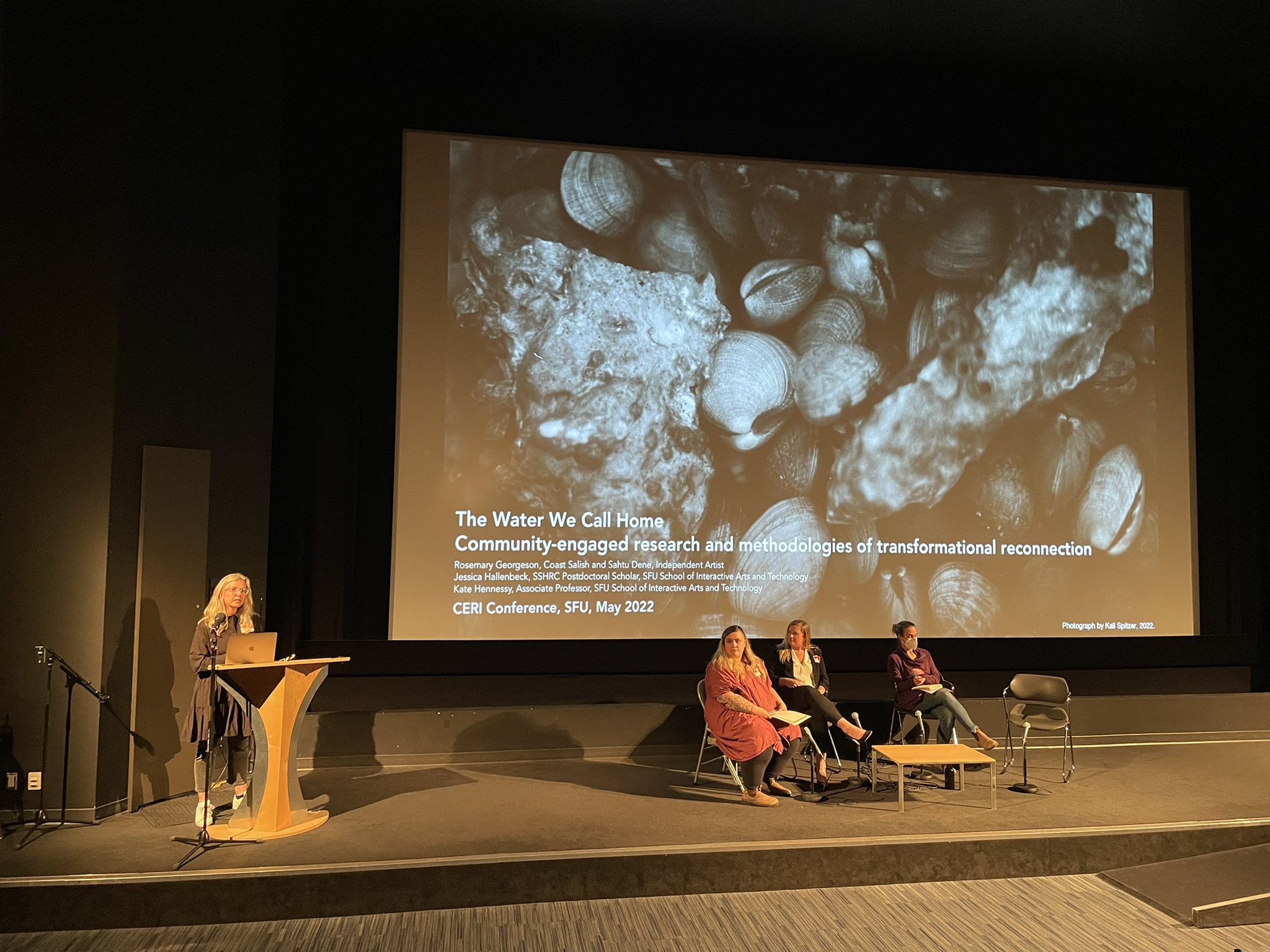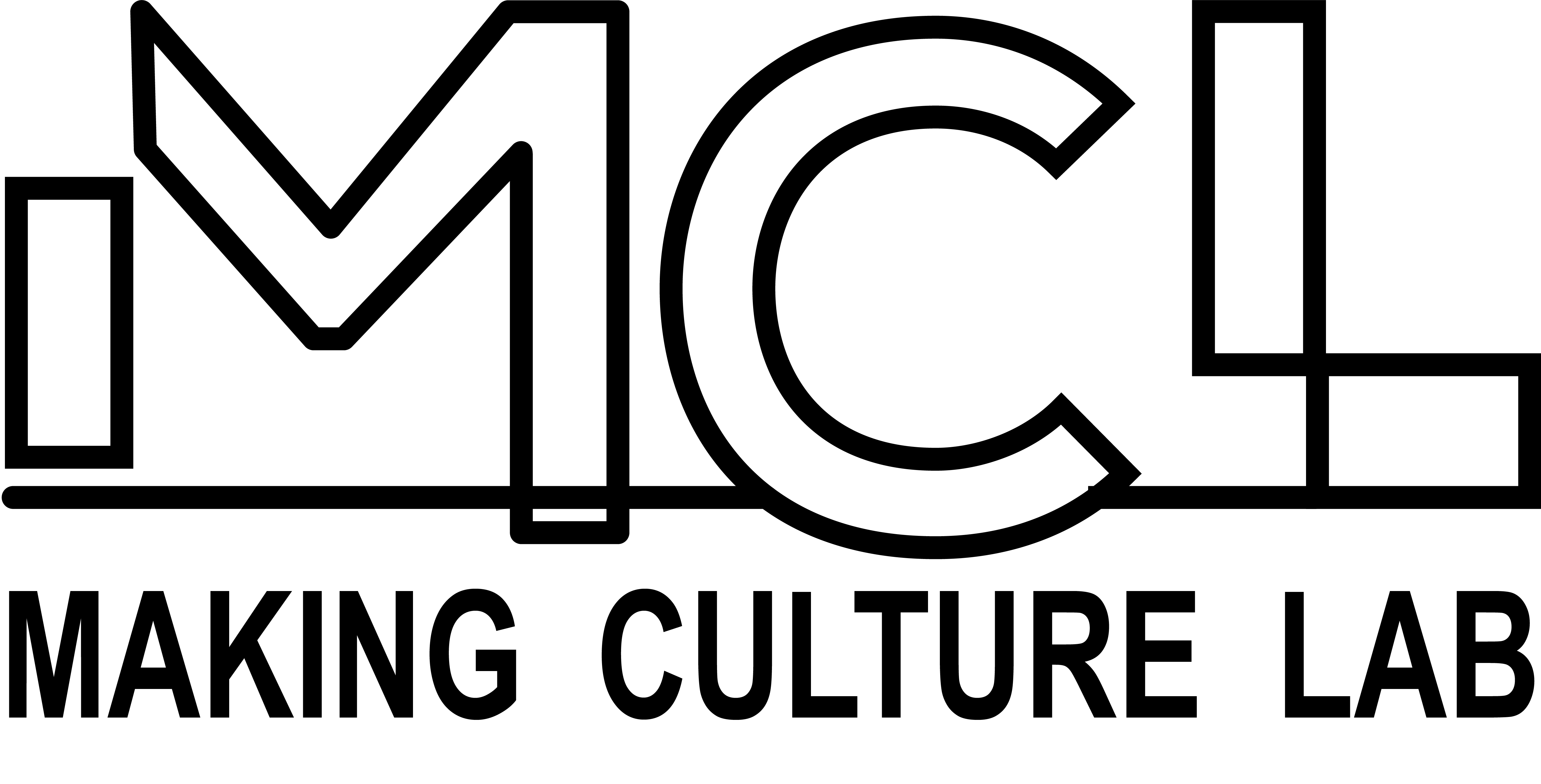CERi Conference Presentation “The Water We Call Home”

Photo by Callista Ottoni, 2022. Photograph on screen by Kali Spitzer, 2022.
Kate Hennessy recently delivered a presentation co-authored with Rosemary Georgeson (Coast Salish / Sahtu Dene) and Dr. Jessica Hallenback and titled “The Water We Call Home: Community Engaged Research and Methodologies of Transformational Reconnection” at the Horizons: Crisis and Social Transformation in Community-Engaged Research Conference at Simon Fraser University. This presentation shared photographs, sound, and video for The Water We Call Home, and upcoming exhibition and symposium on Galiano Island at the Yellowhouse Art Centre. The exhibition shares knowledge about the relationship between Indigenous women, water, and fish along the Salish Sea.
The exhibition and community-engaged work described builds on Jessica’s doctoral work and long term collaboration with Rosemary Georgeson. In her dissertation, Jessica draws on critical Indigenous studies and the concept of ethnographic refusal (Menzies, 2004; Lomawaima, 2016; A. Simpson, 2014; Coulthard, 2014; Tuck and Yang, 2014; to develop a decolonial method that involves video production and deep collaboration for knowledge creation and translation. This approach allowed her to trace the disappearance of Rosemary’s grandmothers and of Coast Salish women from settler archives and local histories while simultaneously refusing to narrate their life histories. This work involved collaborating with Rosemary to create a film and a co-published article (2015) to share part of the story of her family in relation to water and fish along the Salish Sea. Ultimately, the dissertation research resulted in Rosemary finding the traditional territories and names of her ancestors and reconnecting with their descendants. This research set the stage for our current work and exhibition but required a new collaborative methodology for the curation of the exhibition in the context of broader family and community relationships and histories.
In September 2020, six Indigenous matriarchs and artists from Nations along the Salish Sea gathered on Galiano Island, who collectively chose the name Siyeya Nee A Ta Sutkuluts to represent their collectivity. Three subsequent seasonal circle gatherings were held, each centred on reconnecting knowledges and revitalizing land and ocean based practices. These gatherings were witnessed by an extended circle of community members and artists and documented through film and photography. This documentation forms the backbone of the exhibition The Water We Call Home hosted at the Yellowhouse Art Centre.
The hybrid exhibition will feature two videos, a soundscape, photography by Dene photographer Kali Spitzer, archival materials, fishing gear, and hands-on opportunities for visitors to engage with traditional and experiential knowledge about ancestors, water, and fish. The curation of this exhibition has emerged in the process of these gatherings and through the use of collaboratively produced video and photographic documentation.

